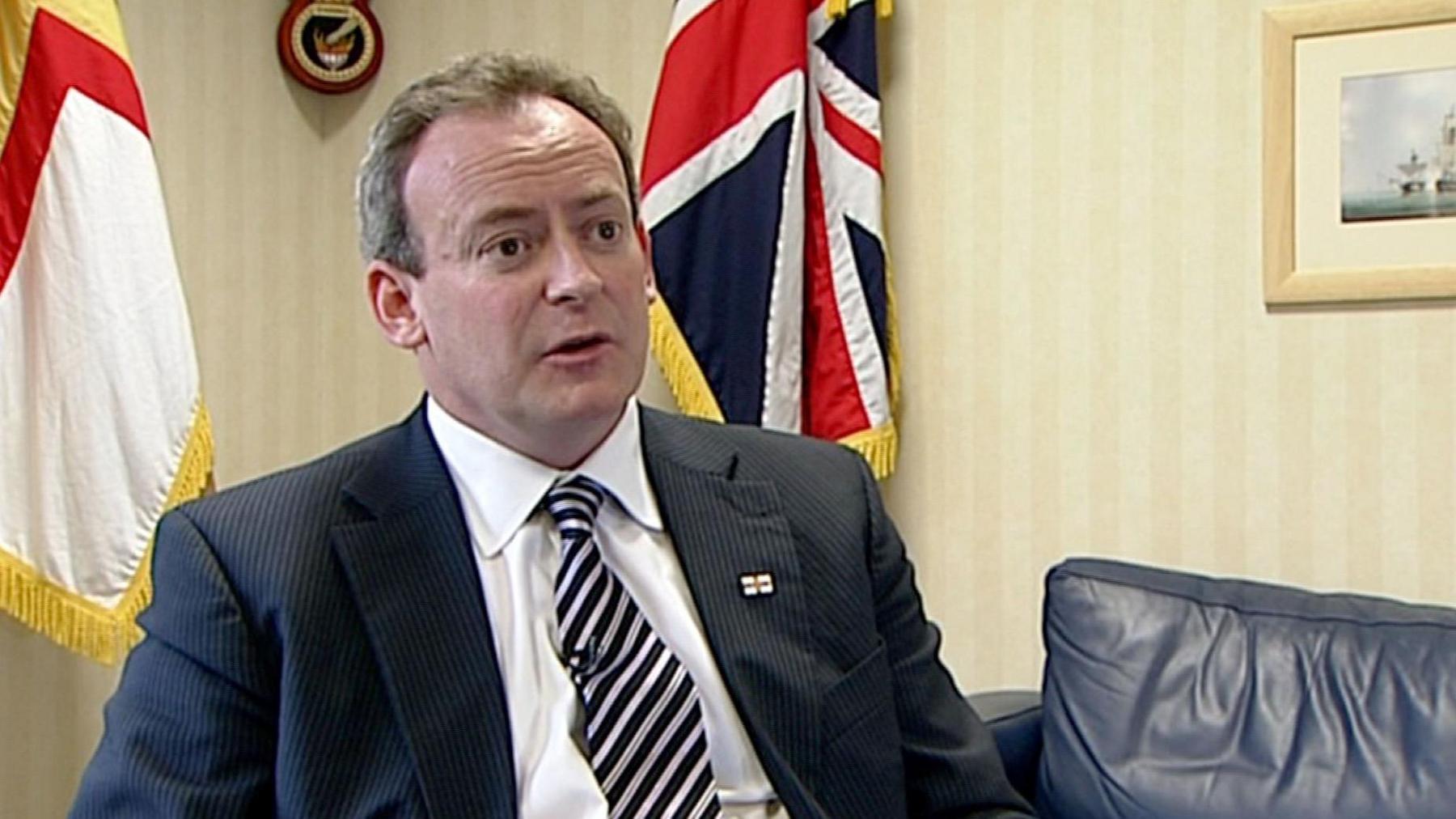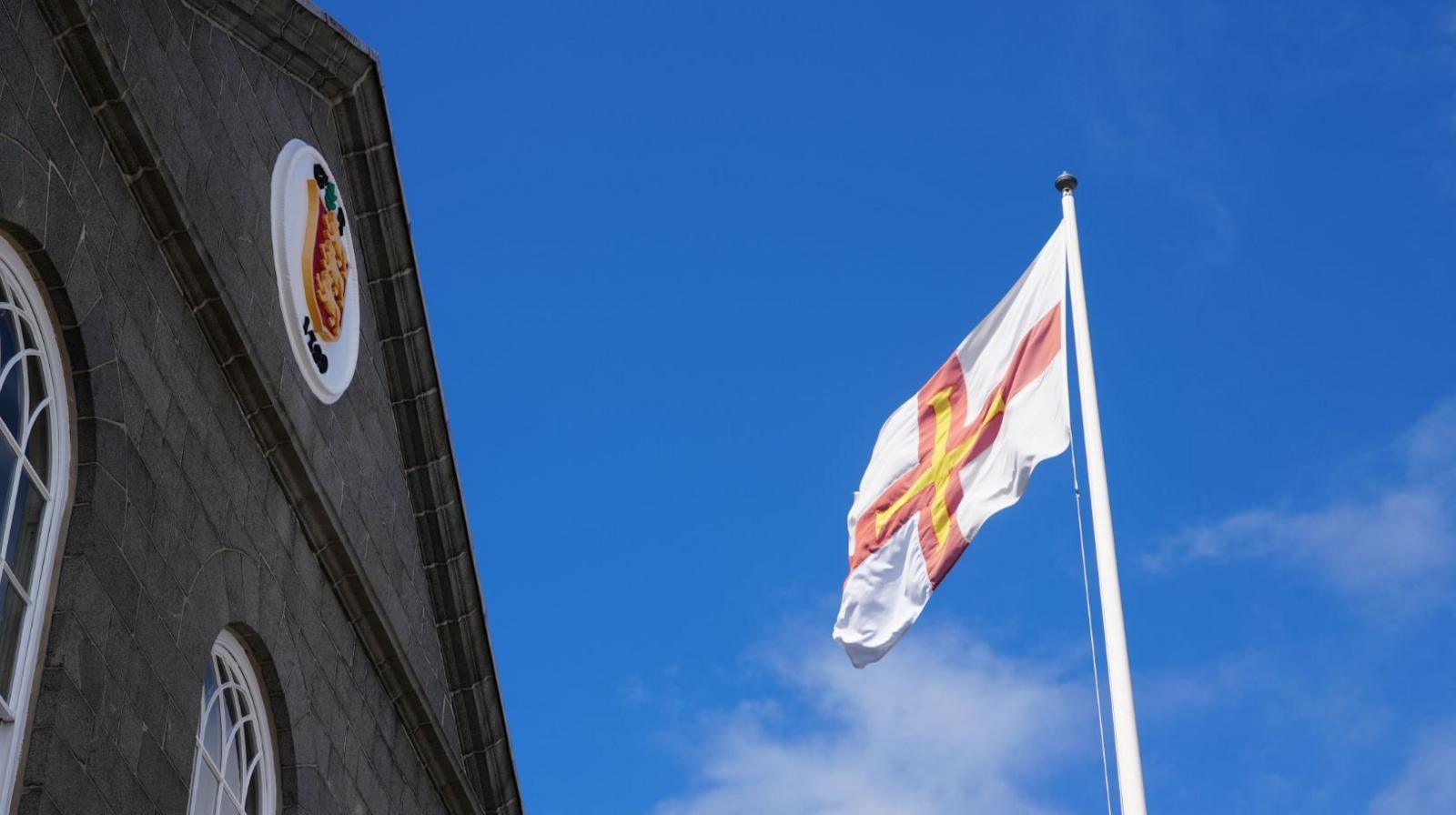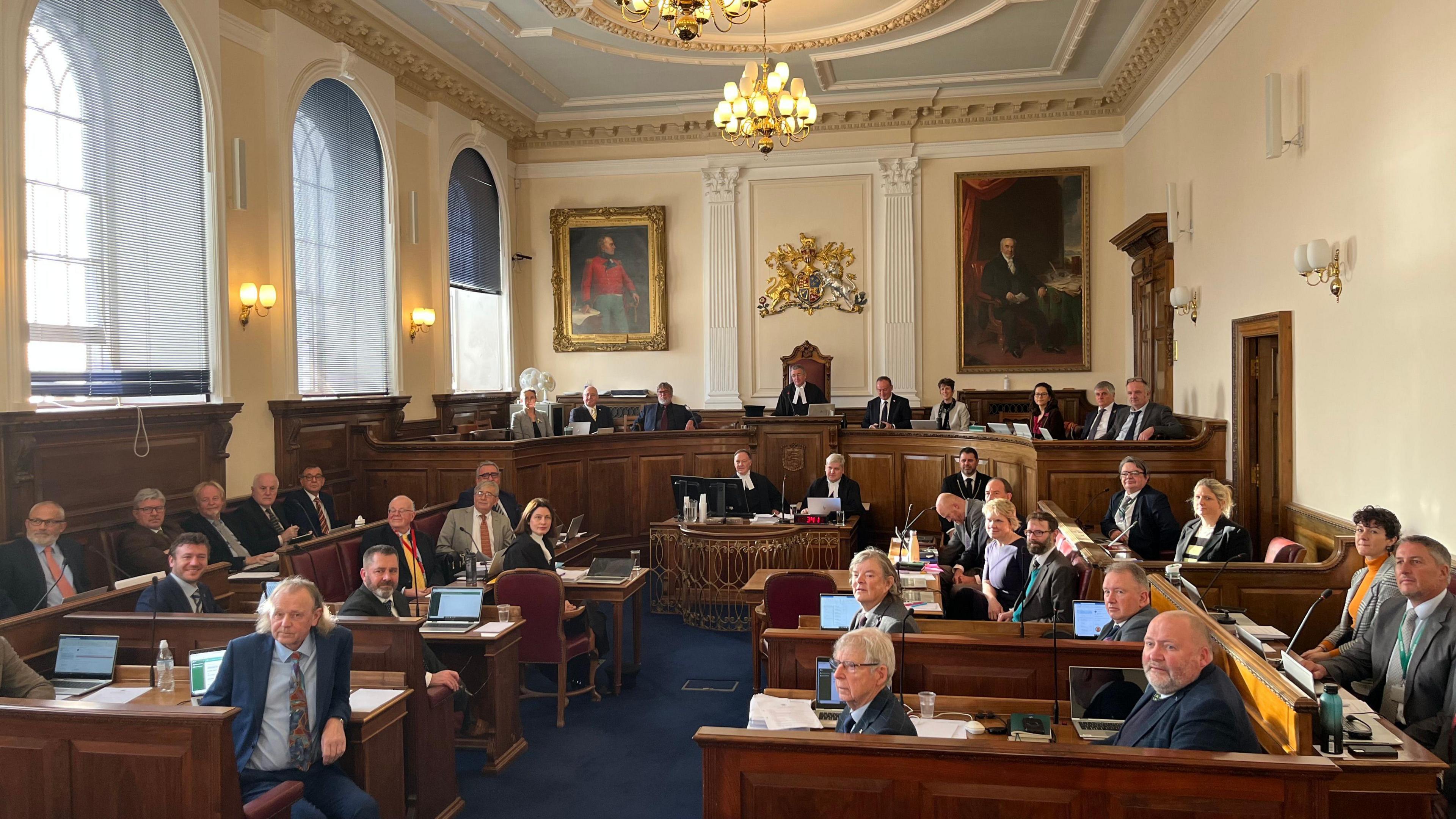Leaving chief minister warns on corporate tax move

Deputy Lyndon Trott OBE is set to stand down at this general election after almost three decades in local politics
- Published
Guernsey's next assembly should not make big changes to the island's corporate tax regime, the outgoing president of Policy and Resources (P&R) has warned.
Deputy Lyndon Trott OBE led the campaign to introduce the zero-10 programme in 2008, which means some companies pay no corporation tax and others pay 10%.
A number of candidates for the 2025 general election have said Guernsey should move to a zero-15 system or adopt a territorial corporate income tax scheme.
"I caution the next States against doing anything unilaterally, only move when those of other size and status are willing to do the same," warned Trott.
Proposals to change the island's corporate tax system were rejected on a number of ocassions during the last political term.
The States decided eventually to adopt a package of tax reforms, including a 5% GST, a lower income tax rate for earnings under £30,000 and reforms to social security contributions.
Exit interview: Deputy Lyndon Trott
In a wide-ranging interview with the BBC, before he leaves local politics on 30 June, Trott declared the changes to corporate tax in 2008 were the "biggest challenge" he had faced.
He said the "damage that we would have done to our community, to our economy, would have been enormous" if the island had not voted for zero-10.
Tax rises 'not heresy'
Despite the States having agreed to introduce a GST, alongside other tax reforms, Trott suggested the States should look at other changes to make the island's tax system more progressive.
He said: "I'm someone who thinks that we pay far too little in terms of income tax. I pay 20%. If 20% means 20% to me, I'd be very happy to pay 22% or even 25%.
"There are colleagues of mine who throw their hands up in horror. It's heresy to speak in this way."
Deputies rejected proposals from Trott for a temporary increase in the rate of income tax from 20% to 22%.
"I genuinely believe in a progressive tax system," commented Trott.
"In other words, those who can afford to pay should pay. However, we absolutely can't touch the way we treat capital."
Covid under-investment
When confronted about why zero-10 had not led to greater economic growth, Trott complained that the island had "under-invested" in its infrastructure for "too long".
He said: "Part of the problem was Covid. We ran down our reserves during Covid substantially.
"We were lucky to have them. And we transferred £150m to support our community from our reserves."
During the pandemic, as Vice-President of Policy and Resources, Trott was in charge of the financial support for businesses.
He said: "It was essential. "But that is money that we would otherwise have invested directly into our infrastructure, which would have created a far more positive economic downturn than the one we've had.
"So I'm sort of hiding behind that."
He blamed the lack of investment on infrastructure on the island's tax take.
He said: "We take something like 21.5% of our GDP in tax.
"Jersey takes 26%, the Isle of Man 29% and the UK is nearly 40%. So we are at the very bottom of that league table."
Follow BBC Guernsey on X, external and Facebook, external and Instagram, external. Send your story ideas to channel.islands@bbc.co.uk, external.
Related topics
- Published18 June 2024

- Published8 November 2024
